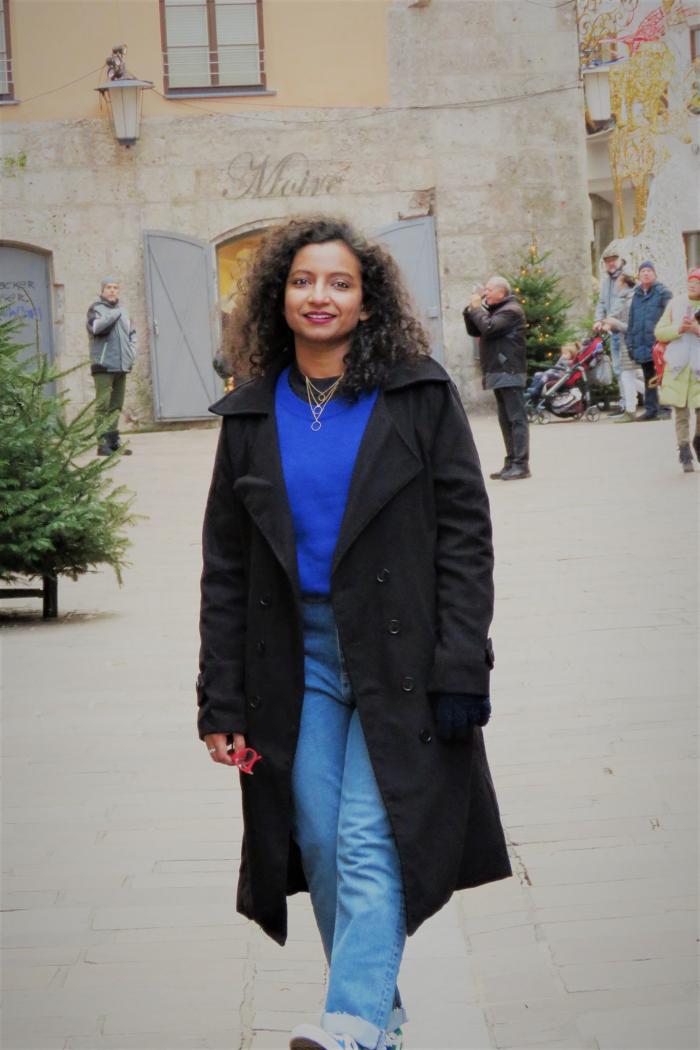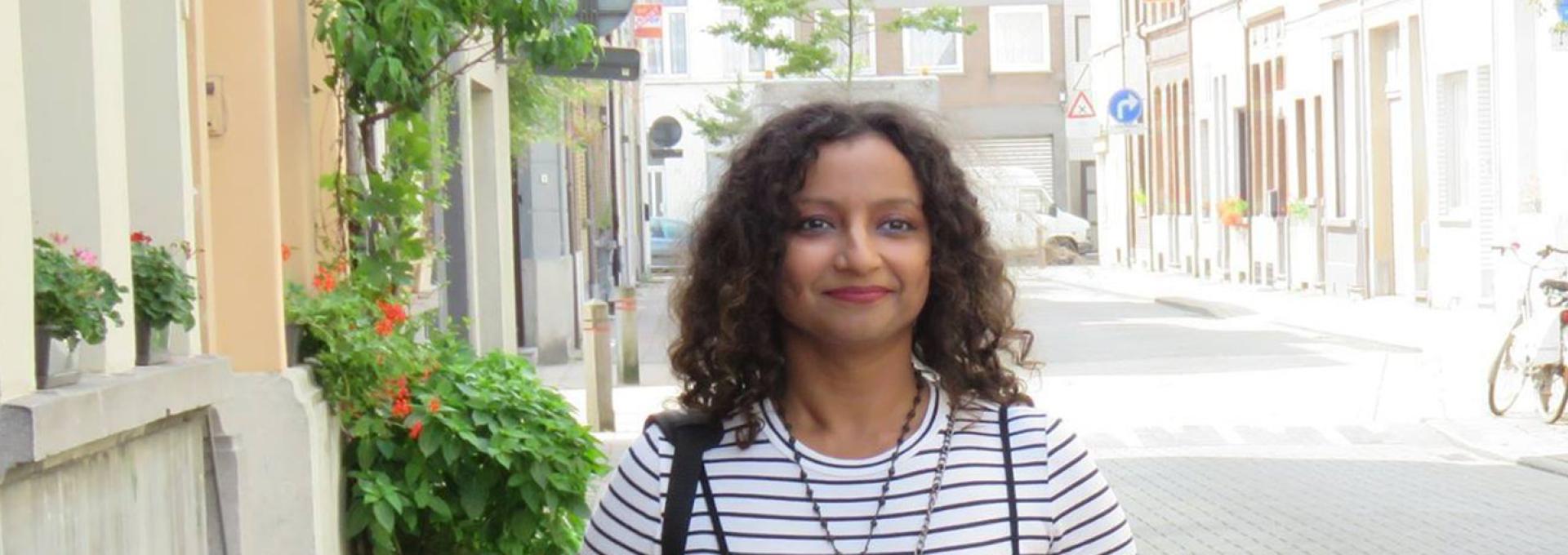Discover the daily life of MSc&T students at École Polytechnique.

Anandita is from Varanasi in India. She has a background in electronics and telecommunications and worked 5 years as an engineer at Ericsson. She is currently in the second year of the Ecotechnologies for Sustainability and Environment Management Master’s program. Let’s hear about her experience!
Why did you choose to study at École Polytechnique?
I was actually looking for top universities all over Europe to pursue my studies. I saw a ranking made by QS International on the Internet listing the top 10 in France and École Polytechnique was number one. I also applied for universities in Germany at the University of Dresden and in Ireland at Trinity Dublin College. And I was accepted to all of them!
The major reason for choosing l’X was the mandatory internships of 6 months for each year. I don’t have a previous experience in environmental engineering which is what I’m currently pursuing. These internships have been a great opportunity to get hands-on experience in the field and to see how the science is applied in real world situations.
What motivated you to apply to the Ecotechnologies for Sustainability and Environment Management Master’s program?
The Ecotechnologies for Sustainability and Environment Management Master’s program was relatively new when I applied and I liked the idea of being part of a new program.
Moreover, what motivated me to go abroad was that I was really looking for an open-mindedness with regards to the science and the application of technologies. I think that in France students are encouraged to explore and try new things no matter what your background is. One of the prerequisites for this Master’s program was to have a background in chemistry which was not my case. But I remember that, during the oral interview, I said to the interviewer “I’m ready to learn, to explore, to understand. If you give me a chance, I will prove myself”. And the interviewer seemed so happy with this honest answer!
What are the main benefits of the program?
In my opinion, the most important benefit of this Master’s is the exposure you get to all types of technologies helping with soil and water pollution, both the existing ones and the ones being developed. Furthermore, thanks to the internships, we get to understand the application of these technologies in the real world. Professors really encourage students to see the practical aspects of technology and understand the core of the underlying science. Finally, the fact that we are only 5 students in my promotion is a real advantage. We get very personalized attention of from the professors and we have a good amount of freedom in the program.
What do you think of the program structure (courses, personal scientific project, Coriolis conferences, etc)?
The main difference between our program and the other ones is that we have an abundance of lab visits and field visits.
With respect to the courses, we do not have elective courses for the moment. Being a program representative, I suggested that it would be great to have some so that could change at some point in the future.
During the 1st year, we also have a mandatory scientific project that lasts 6 months. You can definitely do whatever you want to do. Three students did an experiment in the chemistry lab. They wanted to test how to remove the chlorine pollution in the soil. Personally, I did a bibliography study on the effect of microplastic in the marine organisms. During the course of my project, I read over 50 scientific papers, which culminated in a 50-page report and a 1-hour presentation based of my findings.
One of the key points of École Polytechnique is that they focus on reports and presentations rather than routine examinations. Those communication and soft skills make you better equipped for your future jobs or academic pursuits.
We do not have a scientific project during the 2nd year as it is a bit more complicated than the 1st one. This year we have more of a modelling approach and learn are learning about simulations. For example, we are working on treating the waste water that is generated by the municipal community and how to reduce the pollution in that waste water so that it can be used to generate cleaner water for other purposes like drinking water.
Did you have any favourite subject(s)?
During the first year, I really liked microbial ecology. This subject helps you to understand what’s actually happening beneath the surface. We’ve all heard about the Arctic permafrost thawing for example. But what is actually causing the melting? It’s not just the temperature, there’s something else going on there, with the bacteria active under the layer of permafrost that also needs to be taken into consideration. This course was really interesting for me.
For the second year, I was really into the hydrology course. Hydrology is about the study of water flow in the ecosystem. I learned about the phenomena of rainfall and snow and journey of a water molecule in the water cycle, in general.
Where did you do your internship last year? What about this year? How did you find both of them?
My internship last year was at IRSTEA, a public research institute in France, mainly focused on agricultural sciences. It lasted 4 and a half months and its aim was to determine the carbon balance of artificial wetlands using a balance sheet approach. We wanted to understand whether the wetland was a carbon source or a carbon sink. I got this internship through one of my professors, Julien TOURNEBIZE. I had an amazing opportunity to work with him with the field devices and to go on site! Following the internship, I co-authored a paper that was presented this year in the AGU Fall Meeting 2019 (American Geophysical Union- section hydrologic) in San Francisco.
This year, I’m doing my internship at CNRS’s (LMD) in the meteorology department. I found it again talking with my professors. My topic is the climate modelling on Mediterranean region to understand impact of climate change on water resources.
What would you like to do after your Master’s degree?
My aim is to do a PhD to understand the effect of thawing of permafrost in the Arctic and underlying causes. The internship I’m going to start at the CNRS in climate modelling will help me a lot in applying for a PhD, it’s like a stepping stone.
I don’t plan to go back to India for my PhD for two main reasons. Firstly, there are not many opportunities for PhD students and graduates there. Secondly, PhD’s are not well paid in India. So, my priority is to stay in Europe and if I get it in France that would be great!
Learn more about the Ecotechnologies for Sustainability and Environment Management Master's program.
Why should students apply for the ECOSEM Master ?
